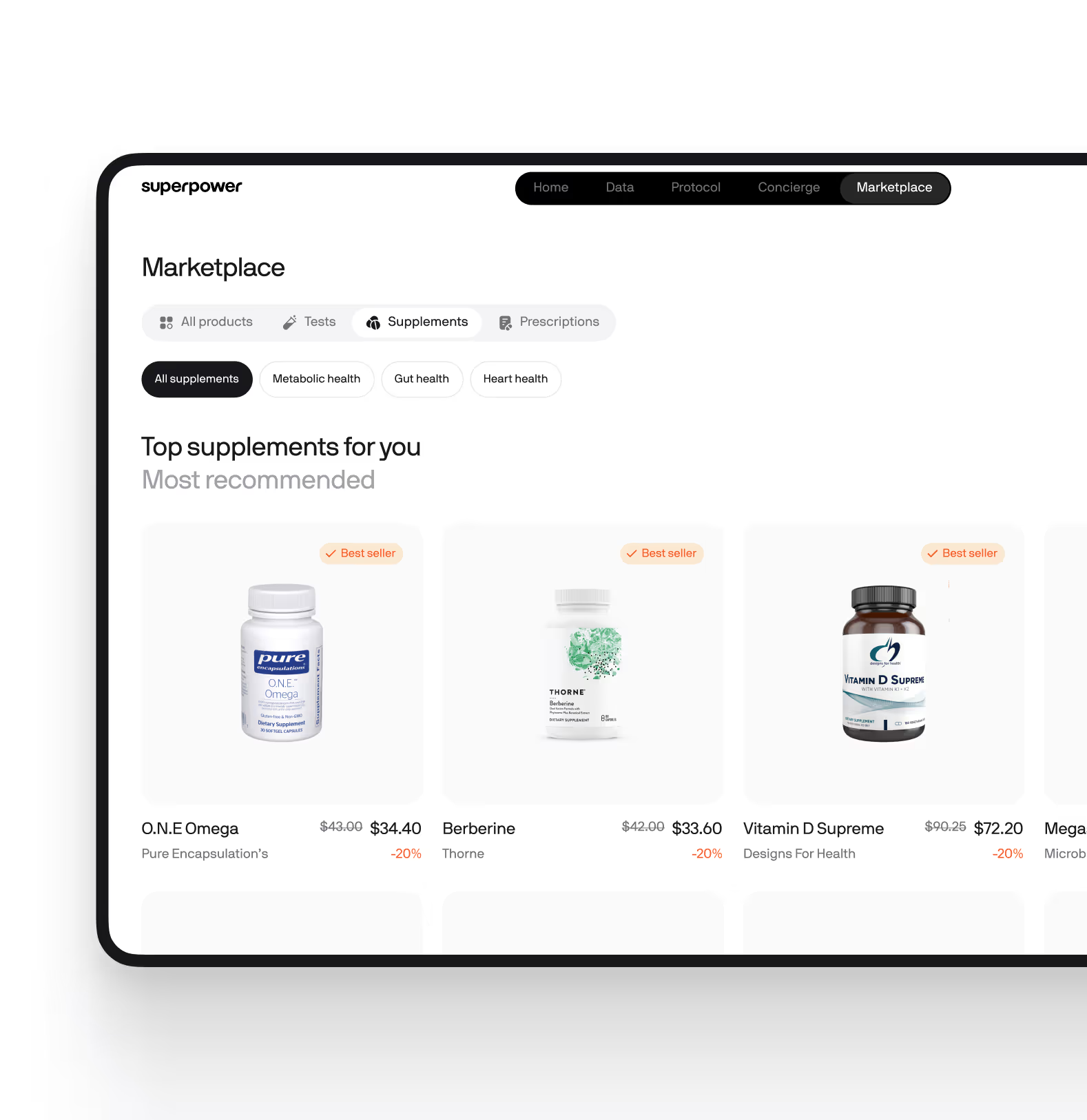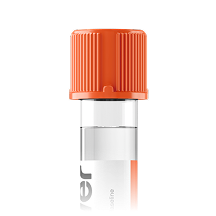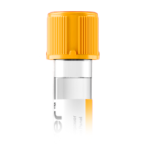Key Benefits
- See how heart failure affects fluid balance, kidney function, and body inflammation.
- Spot low sodium signaling water overload and worse outcomes, guiding fluid limits and medications.
- Flag kidney stress with creatinine to safely adjust diuretics and heart failure medicines.
- Explain swelling risk with albumin, as low levels predict edema and weaker diuretic response.
- Clarify fatigue or breathlessness when sodium or creatinine shifts signal worsening heart failure.
- Guide nutrition and recovery planning, since low albumin suggests malnutrition or liver congestion.
- Track inflammation with hs-CRP to assess risk and uncover infection or flare triggers.
- Interpret results best with NT-proBNP or BNP, kidney filtration tests, medications, and symptoms.
What are Heart Failure biomarkers?
Heart failure biomarkers are molecules your body releases when the heart is under strain, injured, or remodeling. They translate what the heart is feeling—pressure, stretch, fluid overload, and tissue stress—into measurable signals in the blood. The most central are hormones made by heart muscle when it is overfilled or stretched (natriuretic peptides: BNP, NT‑proBNP). These reflect congestion and help distinguish heart-related breathlessness from lung or other causes. Markers of heart cell injury (cardiac troponins) capture ongoing damage even when symptoms are subtle. Signals linked to scarring and inflammation (fibrosis and stress markers such as sST2 and galectin‑3) hint at how the heart’s structure is changing over time. Together, these biomarkers let clinicians detect heart failure earlier, judge its biological burden, tailor therapy, and track whether treatment is relieving strain on the heart. In short, they turn invisible heart stress into actionable information, guiding decisions when exam findings are unclear and helping forecast clinical risk (prognosis) as the condition evolves.
Why is blood testing for Heart Failure important?
Heart failure is a whole‑body syndrome, not just a weak pump. Blood biomarkers translate congestion, perfusion, and inflammation into objective signals from the kidneys, liver, vasculature, and immune system. Tracking them helps explain symptoms like breathlessness, swelling, fatigue, and mental fog, and reveals risk before complications emerge.Albumin is typically about 3.5–5, sodium 135–145, creatinine roughly 0.6–1.3 (lower in women and older adults), and hs‑CRP ideally under 1 (1–3 average, above 3 elevated). In general, albumin is healthiest in the mid‑to‑high range, sodium near the middle, creatinine toward the lower end appropriate for body size/sex, and hs‑CRP as low as possible. High creatinine points to reduced kidney filtration from low cardiac output or renal congestion; high hs‑CRP flags inflammation or infection that can destabilize heart failure. High sodium is less common and often reflects dehydration; unusually high albumin usually indicates hemoconcentration.When these values run low, they tell an important story. Low albumin reflects inflammation, poor nutrition, or liver congestion, and it worsens edema, ascites, frailty, and slow healing. Low sodium signals excess water retention and neurohormonal activation; people may feel fatigue, cramps, confusion, or even seizures, and it often marks more advanced heart failure. Very low creatinine often means low muscle mass—more common in women and older adults—so kidney injury can be masked; it can travel with frailty. Low hs‑CRP is reassuring.Big picture: these markers knit together the heart–kidney–liver–immune axis. Abnormal patterns correlate with hospitalizations, cognitive effects, and survival. Regular blood testing anchors diagnosis, risk stratification, and monitoring as the circulatory, renal, and inflammatory systems adapt over time.
What insights will I get?
Heart failure blood testing provides a window into how well your body’s vital systems are coping with the demands of circulation, energy delivery, and fluid balance. When the heart struggles to pump efficiently, it affects not just the cardiovascular system, but also metabolism, kidney function, brain health, and immune response. At Superpower, we focus on four key biomarkers—Albumin, Sodium, Creatinine, and high-sensitivity C-reactive protein (hs-CRP)—to give a comprehensive view of your body’s adaptation to heart failure.Albumin is a major blood protein produced by the liver, reflecting both nutritional status and the body’s ability to maintain fluid balance. Low albumin can signal chronic inflammation or fluid overload, both common in heart failure. Sodium is an essential electrolyte that helps regulate blood volume and nerve function; abnormal sodium levels often indicate disrupted fluid handling or hormonal changes due to heart failure. Creatinine is a waste product filtered by the kidneys; rising levels suggest reduced kidney function, which often accompanies or worsens heart failure. hs-CRP is a marker of inflammation, and higher levels can point to ongoing stress or injury within the cardiovascular system.Together, these biomarkers help assess the stability of your body’s internal environment. Balanced albumin and sodium support steady blood pressure and tissue health, while normal creatinine indicates the kidneys are keeping up with metabolic demands. A low hs-CRP suggests minimal inflammation, supporting resilience and recovery.Interpretation of these results depends on factors like age, sex, recent illness, medications, and even laboratory methods. For example, older adults or those with chronic conditions may have different “normal” ranges, and certain drugs can alter these markers independently of heart function.


.svg)








.avif)



.svg)





.svg)


.svg)


.svg)

.avif)
.svg)










.avif)
.avif)



.avif)







.png)